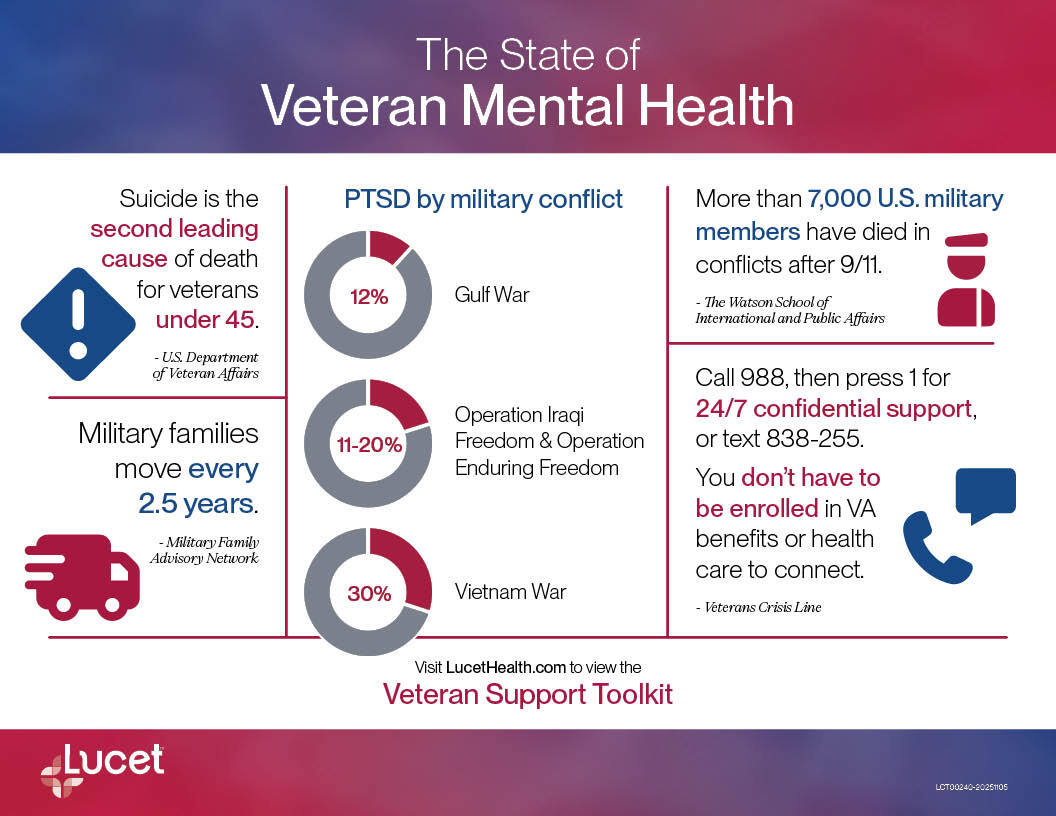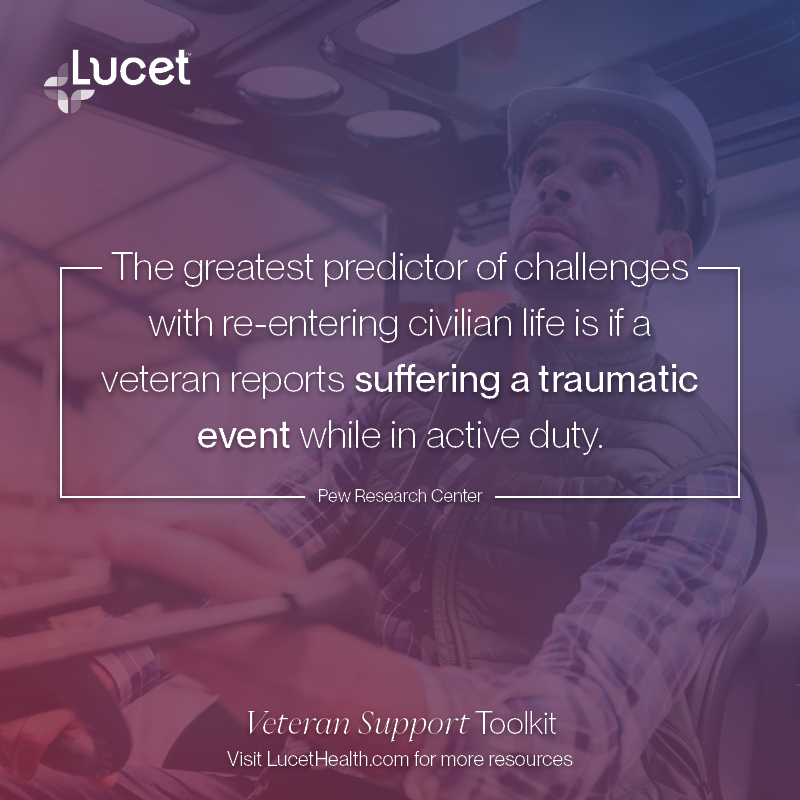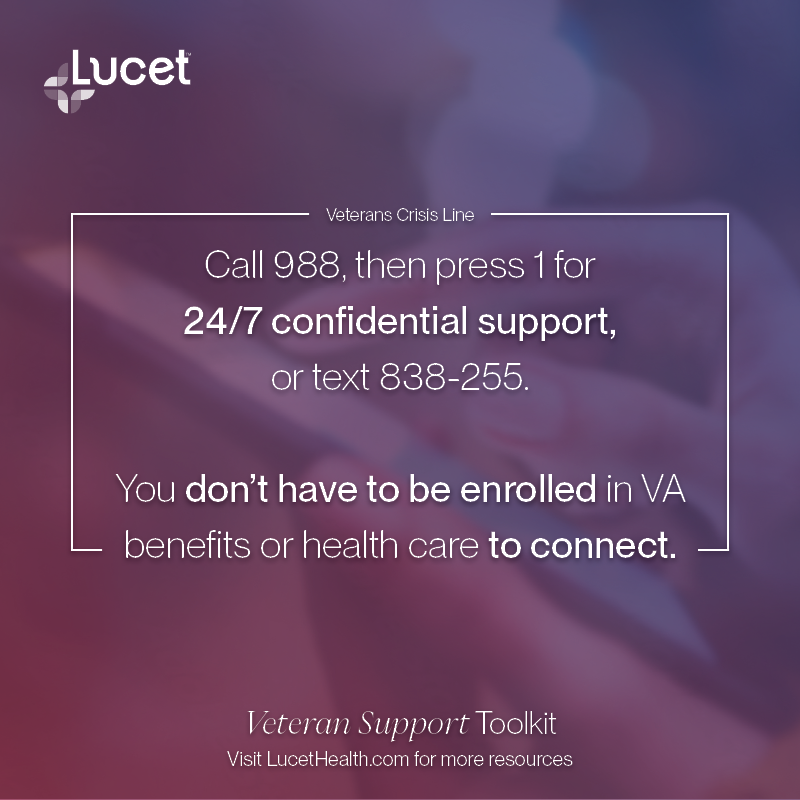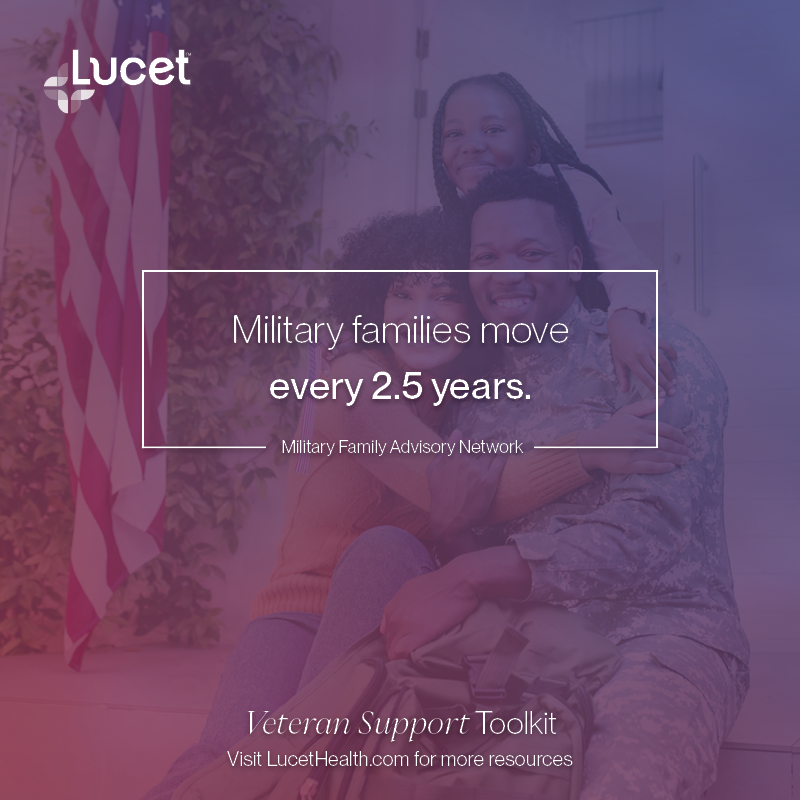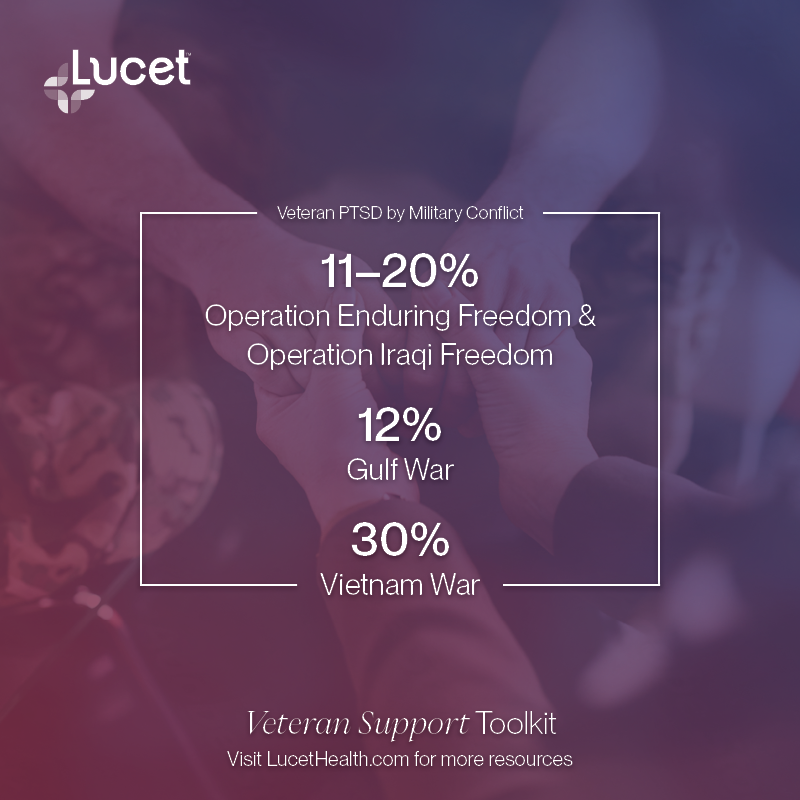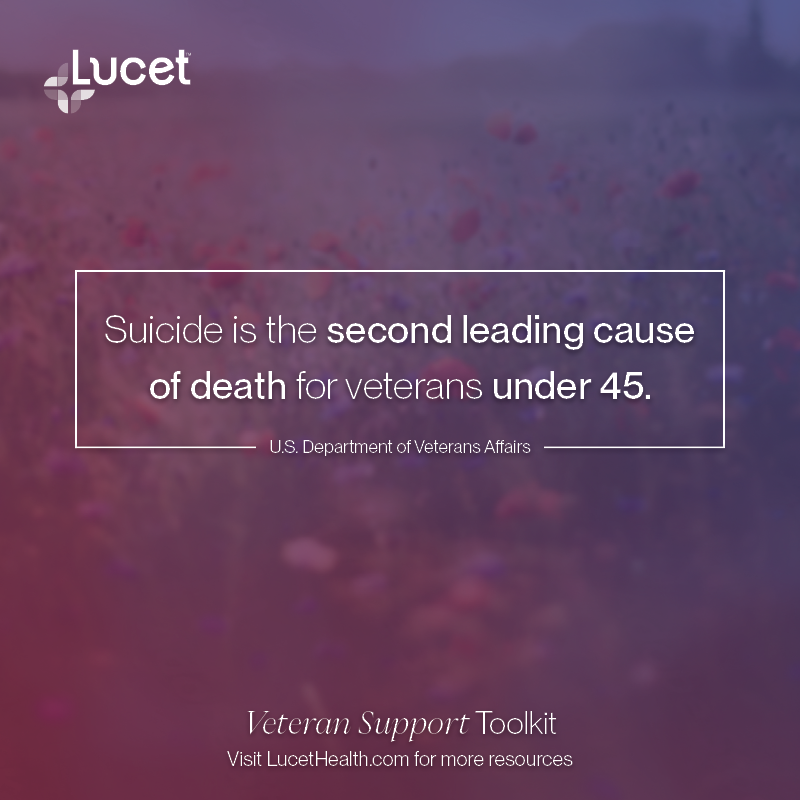Join the Conversation: Veterans Support
Support our veterans
Use the language below when posting about eating disorder awareness on social media. Follow Lucet to see our content and share it on your account. You can also follow the steps below to post from your own account.
Create posts on your social media accounts
- Log in to one of your active social media channels to create a post.
- Scroll below and choose your desired social post language.
- Copy the caption and paste it into your social post editor.
- Right click on the corresponding graphic below to save it to your computer, then upload the graphic to your post to accompany the caption.
- Be sure to tag @LucetHealth. To tag any organizations listed in the caption, type @ in the social post editor, then start typing the desired organization. Choose the organization you want to tag from the dropdown list of pages that appear.
- Include the following hashtag in your caption: #SupportVeterans #ThankAVet
- Post!
Share Infographic/Entire Toolkit
Military veterans sacrifice their time, safety and well-being to protect our country. The physical and mental toll that military service can take on an individual can be lifelong. Our support for their continued health once they return home is the least we can do to thank them.
Use these resources to learn about the mental health challenges our veterans face and how we can support them. Print, distribute or share via social media the materials in this toolkit all year long: resources.lucet.health/toolkit-veterans-support
If you or someone you know is a veteran or military family member experiencing a mental health crisis, call 9-8-8 and press 1 to connect with the 24/7, free and confidential Veterans Crisis Line. For more resources, contact Military OneSource at 800-342-9647.
#SupportVeterans #ThankAVet
Share Tips
Preparing to leave active duty can be daunting. Only those who experienced the rigid schedule, discipline and anticipation of combat can truly understand it.
That's why it can be helpful for those in the service to make an exit plan for future employment, keep in touch with fellow vets, and reconnect with civilian life. Learn how: resources.lucet.health/toolkit-veterans-support/reentering-civilian-life-after-active-duty
#SupportVeterans #ThankAVet
The ripple effects of military loss can be felt all across our country. Each time a military member passes, it impacts countless families and loved ones. These communities may even feel more deeply because of their loved one's sacrifice.
Learn how those with loved ones in the military can find comfort and take care of their continued wellness after a loss: resources.lucet.health/toolkit-veterans-support/living-with-grief-after-a-military-loss
#SupportVeterans #ThankAVet
Many who are touched by military service may not realize that there are ways to connect with support beyond just the benefits received through the Department of Veterans Affairs (VA). Veterans and their families deserve the unique attention and care required to be well under the demands of military life.
Learn how to connect with these resources: resources.lucet.health/toolkit-veterans-support/mental-health-care-resources-for-veterans
#SupportVeterans #ThankAVet
Share Articles
Life as a military family comes with its challenges. Moving often and worrying about a loved one who may be in danger can take a toll on mental health. But military families can lean on support systems who understand what they're going through.
Read more to connect with support: resources.lucet.health/toolkit-veterans-support/supporting-military-families
#SupportVeterans #ThankAVet
Dealing with stress that comes with military service is a common challenge for veterans, even among those who did not see combat. The structure and expectations of the military can leave a lifelong mental impact, and traditional stigma in military culture can prevent vets from seeking care.
Here's how we can better understand military stress: resources.lucet.health/toolkit-veterans-support/veteran-stress-and-how-to-help
#SupportVeterans #ThankAVet
Because military service can be intense, veterans face mental health challenges like post-traumatic stress, substance use, domestic violence and suicide.
Veterans can find peace in life after the military with the right help and resources. Learn more: resources.lucet.health/toolkit-veterans-support/understanding-mental-health-risks-for-veterans
#SupportVeterans #ThankAVet
#SupportVeterans #ThankAVet
If you or someone you know is a veteran or military family member experiencing a mental health crisis, call 9-8-8 and press 1 to connect with the 24/7, free and confidential Veterans Crisis Line. For more resources, contact Military OneSource at 800-342-9647.
